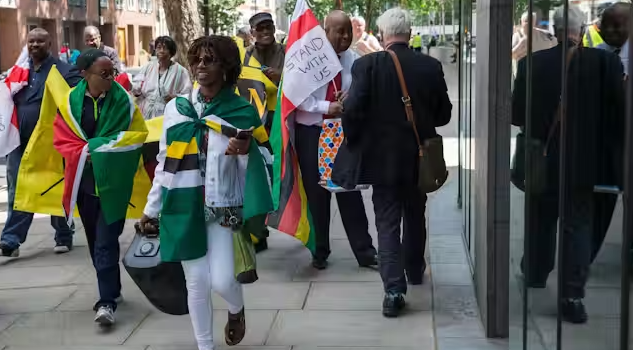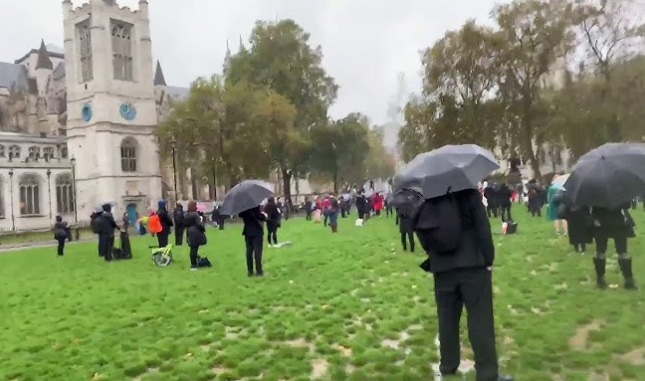
Concerns Raised Over Accessibility and Impact on Victims
The Windrush compensation scheme is set to be curtailed due to insufficient applications, despite calls from claimants highlighting the challenges they face in navigating the process. The Home Office is reportedly revising its expectations, with fewer victims likely to receive compensation than initially projected.
Simon Murray, a parliamentary under-secretary of state for migration and borders, acknowledged in a statement that the number of claims has fallen significantly short of expectations. This announcement follows appeals from various campaigners, including Labour MP Marsha de Cordova and other prominent figures, urging the Home Secretary to expedite payments. Many individuals have tragically passed away before receiving any compensation.
In his correspondence, Lord Murray noted that, despite ongoing outreach initiatives, the volume of claims has not met the anticipated figures. Consequently, the Home Office has adjusted its initial estimate from 11,500 down to a range of 4,000 to 6,000, as detailed in an updated Impact Assessment released in February 2020. Since the scheme’s inception in 2019, £65.78 million has been distributed across 1,757 claims, with an additional £11.98 million offered by the government.
However, significant delays have plagued the scheme, with nearly 20% of those compensated last year waiting over a year and the number of individuals who have died while awaiting payments nearly doubling in two years.
Roland Houslin, a UK-born individual who moved to Jamaica in 1973, shared his experience of being barred from returning to the UK due to the “two-year rule” enforced by the Immigration Act 1971. Though he returned in 1988, his parents remained unable to do so. Houslin applied for compensation in 2021 alongside his elderly mother, but their claims were declined for lacking sufficient evidence. He highlighted that the scheme does not accommodate those who were born in the UK but subsequently faced barriers.
Houslin expressed frustration over the Home Office’s demands for documentation, stating that the process has been slow and burdensome. “For the Home Office, it’s all about optics and giving an impression that the scheme is working when it’s not,” he remarked, labelling the scheme as both insulting and abusive.
When approached for comment, the Home Office declined to guarantee that the proposed reductions would not adversely affect claimants. In response, de Cordova criticized the government for failing to take responsibility for the erosion of trust in the Home Office, asserting that the reduction in estimated claimants is unacceptable. “The government must commit to providing the compensation that Windrush victims deserve,” she stated.
Dr Wanda Wyporska, chief executive of the Black Equity Organisation, pointed out that the compensation scheme has become overly bureaucratic, leading to victims either passing away before resolution or feeling too intimidated to apply. She suggested that the administration of the scheme should be transferred to an independent body focused on rectifying the injustices faced by the Windrush generation.
Lord Murray’s letter also seemed to downplay the severity of the situation, implying that many potential claimants had not suffered significant losses due to their inability to demonstrate lawful status. He noted that, as of the first quarter of 2023, over 16,200 individuals had received documentation confirming their citizenship status, yet many had not experienced detriment.
This comes in the wake of a critical report from Human Rights Watch, which condemned the government for imposing an unreasonable burden of proof on applicants. The charity argued that requiring individuals to demonstrate their inability to find work due to lack of lawful status is impractical and unjust.
L’myah Sherae, co-founder of the all-party parliamentary group for race equality in education, remarked that Lord Murray’s statements reveal a profound misunderstanding of the Windrush community’s needs. “To suggest that many have not suffered losses is tone-deaf and ignores the lived experiences of countless Black Britons,” she asserted.
This is not the first instance of the Home Office scaling back the scheme; in 2020, it reduced its estimated payout from £112 million to £86 million. Recent reports also indicated that the Home Office dismantled the unit responsible for reforming practices to prevent a recurrence of the Windrush scandal, following the Home Secretary’s withdrawal of essential commitments for enhanced independent oversight of immigration policies.
Despite previous acknowledgments from ministers regarding the role of government distrust in the low application rates, no comprehensive plan has been presented to address these issues. Criticism has been directed at the department for adjusting its expectations based on application numbers rather than investigating the underlying reasons for the shortfall.










